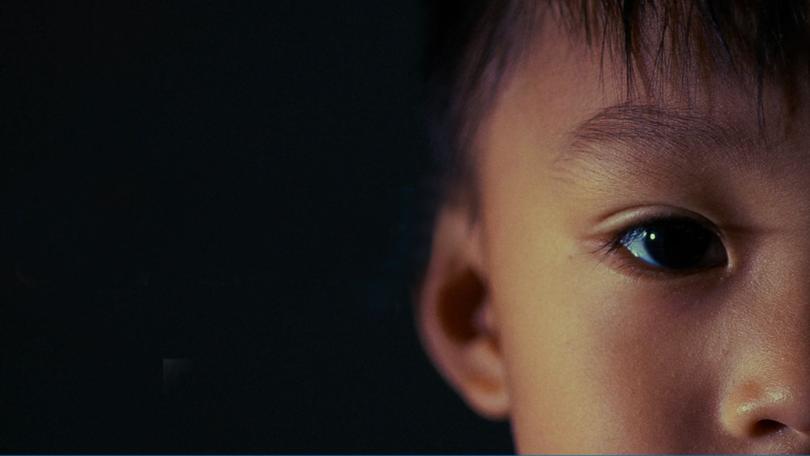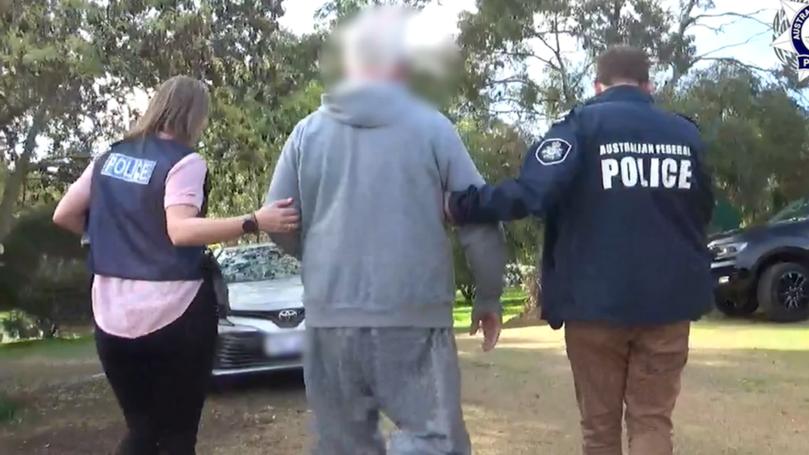Australian paedophiles exploiting poverty-stricken parents by paying them to sexually abuse their kids online
Depraved Australian paedophiles are commissioning the ‘pay-per-view abuse’ of young children for as little as $15 in another battlefront in the war against online child sexual abuse. WARNING: GRAPHIC CONTENT

WARNING: GRAPHIC CONTENT
Depraved Australian paedophiles — who think they have discovered a “low cost and low risk” way to fulfil their cruel fantasies — are commissioning the “pay-per-view rape” of young children for as little as $15 in what has become yet another battlefront in the global war against online child sexual abuse.
Australian predators are consistently among the top three nationalities worldwide exploiting poverty-stricken families in south-east Asian countries to access cheap and horrific child sexual abuse on demand.
Sign up to The Nightly's newsletters.
Get the first look at the digital newspaper, curated daily stories and breaking headlines delivered to your inbox.
By continuing you agree to our Terms and Privacy Policy.Distant live-streamed abuse involves children being sexually violated, in real-time, via a video call for paying perpetrators, who view the vile exploitation from the comfort and privacy of their homes in Western nations, including Australia.
Another adult — who is physically present with the child — facilitates the inhumane abuse, which is live-streamed from developing countries like the Philippines.
Facilitators can be anyone who has access to children, including parents, relatives and neighbours.
The Australian Federal Police said this sickening crime is now routinely being commissioned and directed by Australians – who think they can anonymously sexually abuse children online with impunity – for as little as $15 per assault.
“Generally these offences are driven by the financial circumstances of the facilitator and the purchaser” an AFP spokesperson said.
“Australian offenders are commonly in a financial position to exploit the poverty of high-risk countries.
“The AFP has observed that individual transactions can range from less than $15 to more than $1000.”
INHOPE, a global network of hotlines dedicated to combating all forms of online child sexual abuse material, says the Philippines is the main location for the victims of distant live-streamed abuse due to a combination of poverty, a well-established sex industry, limited police resources, a developed IT-infrastructure, cheap mobile phones and simple ways of making international money transactions.
Most Filipinos speak English which makes communication with perpetrators easy.
Offenders usually make contact with a Filipino “facilitator” online, through social media or a dating app, who arranges for a child to be sexually abused on camera and negotiates the price.
“While it is well known that Australian livestream offenders target children in the Philippines, they also livestream offend across a number of other South-east Asian nations,” an AFP spokesperson said.
“Countries synonymous with child sexual exploitation in the travel and tourism trade are now major sources of live online child sexual abuse (LOCSA), with poverty – alongside reliable and easy access to the Internet and webcams – a major factor in participation.
“Victims of LOCSA are often pressured into participating in the on-camera exploitation by their family or by commercially-run criminal syndicates.”
Offenders can consume LOCSA via any platform that offers video calling.
“LOCSA is not limited to one platform and can be viewed on most video teleconferencing and social media software platforms,” an AFP spokesperson said.
“Anecdotal evidence suggests global demand for LOCSA is high and will continue to increase, and this concern is shared among international law enforcement partners.
“LOCSA can be seen to be convenient for offenders as there is no need for them to travel, it can be customised to their specific requirements, is ‘low cost’ and is perceived as relatively ‘low risk’.”
However, the Commonwealth Criminal Code comprehensively criminalises LOCSA.
Offenders who engage in the sexual abuse of children online, including LOCSA offences, face 25 years in jail and mandatory sentences of seven years’ imprisonment.
However, bringing alleged offenders before the courts can be challenging as the primary tangible evidence is lost once the video call ends.
For that reason, financial transaction data is also crucial in detecting and disrupting this crime type.

Research from the Australian Institute of Criminology, published last year, found that Australian perpetrators were likely to be aged in their 50s or 60s and the majority (55 per cent) had no criminal record. Only 10 per cent had a sexual offence recorded in their criminal history.
“As individuals purchased more CSA live streaming transactions, the median amounts they paid increased and the transactions became more frequent. These two variables were significantly correlated,” the authors said.
“This may reflect an escalation in the frequency and severity of offending.
“The study recommended that detection and removal of new CSAM, and scanning of live streams for abusive content, should be a priority for all electronic service providers.”
The International Justice Mission, a global organisation that protects people in poverty from violence, says the sexual abuse of children in the Philippines is driven by foreign demand.
In 2022 alone, nearly half a million Filipino children were trafficked to produce child sexual exploitation material for profit with abuse largely driven by demand from the United States, United Kingdom, Australia, Canada and Europe.
Studies by IJM have found that over half the children abused in identified cases were 12 years old or younger. The youngest victim was just a few months old.
In the Philippines, victims — who suffer both mental and physical trauma — were abused on average for two years prior to safeguarding.
Victims suffer further trauma when rescued from facilitators — often close family members — who abused them, orchestrated their abuse or both.
John Tanagho, Executive Director of IJM’s Centre to End Online Sexual Exploitation of Children, recently said the scale of the abuse was “sickening”.
“It is crystal clear that digital spaces and internet-connected, camera-enabled devices pose growing opportunities for offenders to sexually abuse children with ease, anonymity and impunity,” he said.
“Child protection urgently demands increased tech sector detection, reporting, a duty of care, safety by design, transparency and accountability, along with improved law enforcement responses – in both demand and supply-side countries.
“To stem the growth of these violations of children’s rights, it will take coordinated global action among legislators, criminal justice systems, tech and financial sectors, civil society and survivor leaders.
“The challenges are complex, but child protection solutions – in the justice, tech and financial sectors – already exist. It is time for key stakeholders to prioritise their broad deployment.”
Meanwhile, the AFP and Australian Border Force are constantly on high alert, often arresting perpetrators after baggage searches at airports.

In March, South Australian man Andrew Donald Steele pleaded guilty to seven child sexual abuse offences, including one count of persistently sexually abusing a child outside Australia.
He had been arrested in May 2023 after ABF officers at Adelaide International Airport found child abuse material on his phone when he returned from Bali in May 2023.
The South Australia Joint Anti-Child Exploitation Team (JACET), comprising AFP and SA police officers, executed a search warrant at the man’s Yankalilla home in May 2023 where they located and seized electronic devices.
Further forensic examination of the devices allegedly identified additional child abuse material involving live online child sexual abuse.
The subsequent investigation resulted in the identification of two girls on the island of Bohol, who were removed from harm and placed into the care of child protection services.
Prosecutors alleged the 65-year-old paid overseas paedophiles almost $50,000 over six years to abuse the girls both in person and while he watched online from his home.
The Adelaide Advertiser reported that one victim was allegedly abused on his behalf 300 times in 24 days.
A Filipino woman has since also been arrested, accused of selling her daughters into sexual slavery and allowing Steele to abuse them in exchange for $50,000 over six years.
The maximum penalty for persistent sexual abuse of a child is 30 years imprisonment. Steele is yet to be sentenced.
This year the AFP also charged a Sydney man with sexual activity with a child outside Australia after he allegedly paid to watch online as a child overseas was sexually abused.
The 47-year-old truck driver was arrested after ABF officers at Sydney International Airport found suspicious messages on a mobile phone when searching his baggage.
The AFP then allegedly found messages in which the accused provided instructions to another adult to sexually abuse a girl, while he watched on livestream video, in January 2023.
The accused, who is yet to enter a plea, is facing a maximum penalty of 20 years in jail.
The accused will face a committal hearing next month.
REPORT CHILD SEXUAL ABUSE
Members of the public who have information about people involved in child abuse are urged to contact the ACCCE at www.accce.gov.au/report.
If you know abuse is happening right now or a child is at risk, call police immediately on 000.

